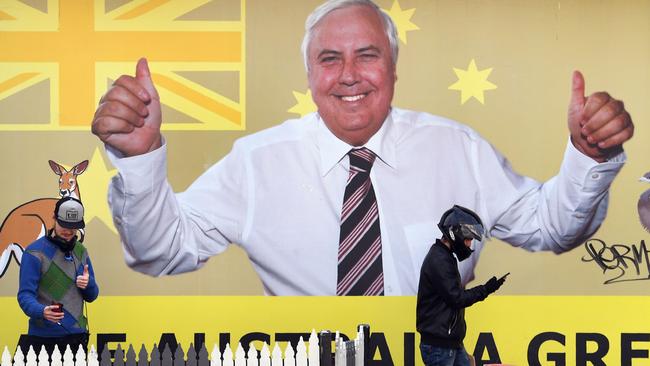Clive Palmer preferences had no meaningful impact on Coalition win
Clive Palmer preferences had no meaningful impact in all but two seats where the LNP holds a lead.

Clive Palmer’s preferences have failed to have any meaningful impact in all but two seats where the Coalition holds a lead despite the Queensland businessman’s $50m advertising spend.
Only in Chisholm in Victoria where the Coalition holds a 1147 lead and Bass in Tasmania, where the Coalition holds a 437 vote lead, will Palmer preferences potentially matter to the outcome.
The Coalition currently holds 75 seats in the 151 seat House of Representatives but is leading in Chisholm and Bass. Wins in these seats would provide Scott Morrison with a majority in his own right.
The UAP candidate in Chisholm is running sixth with 1147 votes in Chisholm and in Bass the UAP candidate is running fourth with 2851.
This means that while Palmer can claim his advertisements had an impact on how voters saw Bill Shorten and might have helped Scott Morrison get to a majority in his own right, the Prime Minister’s return to power had little to do with his preferences.
In Queensland the two party preferred margin of victory for the Coalition candidates was greater in every seat than the UAP candidate’s entire vote.
Even in Longman, which is now the Coalition’s most marginal seat in Queensland on current counting, the UAP candidate received 2705 votes, while the margin of victory was 5254 votes.
Palmer preferences failed to exceed the margin of victory for the Coalition’s most marginal seats in South Australia and Western Australia as well.



To join the conversation, please log in. Don't have an account? Register
Join the conversation, you are commenting as Logout